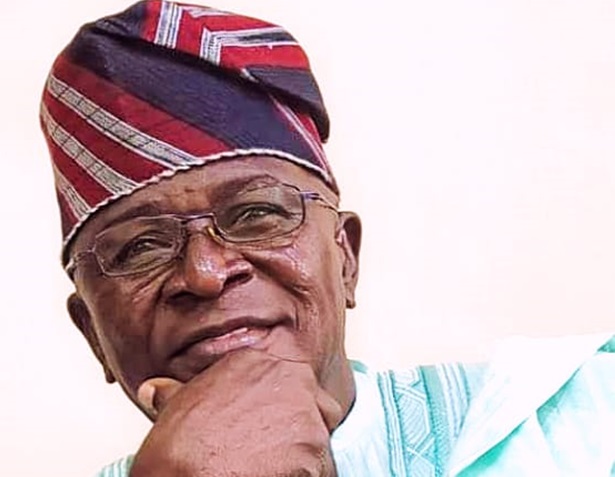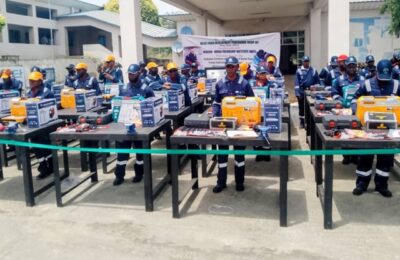By Musa Bakare
In a nation where leadership has often been characterized by empty promises and an aversion to reform, President Bola Ahmed Tinubu stands out as a bold exception. His presidency is distinguished by decisive actions, strategic reforms, and a steadfast commitment to long-term national transformation.
With experience, bold reforms, and the political will at the forefront, President Tinubu is actively reshaping Nigeria’s future.
Nigerians are beginning to witness genuine change, built on a foundation of competence, courage, and a clear vision. President Tinubu is not merely delivering performances; he is resetting the trajectory of Nigeria.
He is establishing a benchmark for progressive governance, overhauling tax structures, increasing internally generated revenue, and creating modern public service institutions. The enduring legacy of reform provides the administrative and political depth that now guides his presidency.
From Day One, President Tinubu took bold steps that his predecessors shied away from, such as the removal of the harmful fuel subsidy. This move eradicated decades of corruption linked to a deceitful import system. Nigeria, previously reliant on foreign refineries and dubious swap agreements, is now committed to building domestic refining capacity, with the Dangote Refinery and modular plants leading the charge.
This is not merely about subsidy removal but signifies a strategic economic reset aimed at boosting local production, reducing import dependency, creating jobs, and stabilizing the naira.
Despite the uproar from former subsidy beneficiaries, Nigeria is no longer beholden to their interests. President Tinubu acted decisively without backtracking or pandering to unions, demonstrating courage and clarity.
His political acumen, evident in the creation of the APC coalition and the unseating of a ruling party that had been in power for 16 years, showcases a masterclass in political engineering. His capacity to forge connections across regions and ideologies is indispensable in today’s fragmented political climate, a skill few Nigerian leaders possess.
Addressing Nigeria’s security concerns including terrorism, banditry, and kidnappings requires a multifaceted approach. President Tinubu has committed to enhancing inter-agency coordination, executing intelligence-driven operations, and improving welfare for military and police personnel. These initiatives are already rekindling hope in previously violence-ridden areas.
With over 60% of the Nigerian population under the age of 30, President Tinubu has prioritized youth development through job creation initiatives, skills acquisition programs, and technology-driven educational reforms. His policies resonate with young Nigerians eager to engage actively in national growth and development.
From assembling his cabinet to setting policy directions, President Tinubu has shown an acute awareness of Nigeria’s ethnic and regional diversity. His commitment to national unity serves as the bedrock for enduring peace and prosperity.
Much like his experience governing Lagos, President Tinubu recognizes that infrastructure underpins development. His administration is vigorously pursuing road rehabilitation, railway expansion, and power sector reforms, aimed at establishing a firm foundation for investment, mobility, and industrial growth.
Throughout his political career, President Tinubu has faced attacks, legal challenges, and media scrutiny. Yet, his fundamental ability to rise, adapt, and lead has remained unchanged. This resilience is now a national asset, empowering a presidency that focuses on progress rather than excuses.
While opposition coalitionists may complain, obstruct, or hope for failure, President Tinubu continues to work. He hasn’t just eliminated the subsidy; he has dismantled the entrenched interests that thrived on Nigeria’s stagnation.
Unsurprisingly, many of these interests are now lamenting their lost privileges and attempting to regroup, to form coalition against a regime that enjoys the backing of Heavens and the support of Nigerian masses.
Ultimately, history will not remember the coalition of detractors and critics; it will remember the likes of Asiwaju Bola Ahmed Tinubu, the man who boldly took decisive action.
President Bola Ahmed
Tinubu is excelling, and Nigerians believe he will remain steadfast in his vision. He will not only succeed but will also redefine presidential leadership in Nigeria, extending beyond his two terms from 2023 to 2031.
– Musa Asiru Bakare, a Foundation Member of APC and Tinubu Support Group (TSG), writes from Lokoja, Kogi State.




